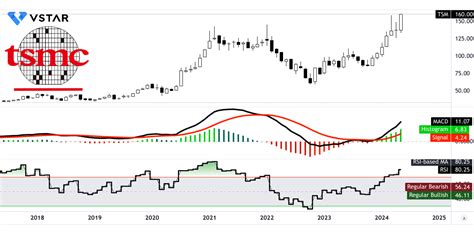Introduction
Hamsters have become increasingly popular pets due to their adorable appearance, small size, and ease of care. If you’re considering welcoming a hamster into your home, it’s essential to be aware of the financial responsibilities associated with their ownership. This article provides a comprehensive guide to the various costs involved in owning a hamster, from the initial purchase to ongoing expenses.

Initial Costs
Purchase Price
The cost of purchasing a hamster varies depending on the breed, age, and where you buy it from. On average, a hamster costs between $10 and $50. Pet stores and breeders typically charge higher prices than shelters or adoption centers.
Setup Costs
In addition to the purchase price, you will need to invest in supplies to provide a comfortable and healthy environment for your hamster. Essential setup costs include:
- Cage: $20-$100
- Bedding: $10-$20
- Food and water bowls: $5-$15
- Toys: $10-$30
Ongoing Expenses
Food
Hamsters require a balanced diet consisting of pellets, seeds, fresh vegetables, and occasional treats. The average monthly cost of food for a hamster is approximately $10-$20.
Water
Hamsters need access to fresh water at all times. The cost of water is minimal, usually less than $5 per month.
Bedding
Bedding is essential for keeping your hamster warm and comfortable. The cost of bedding varies depending on the type and quantity purchased. Expect to spend around $5-$15 per month on bedding.
Veterinary Care
Regular veterinary checkups are necessary to ensure your hamster’s health and well-being. The cost of a basic checkup typically ranges from $30 to $60. Additionally, unexpected medical expenses can arise, such as illness or injury, which may require costly treatments.
Pain Points and Motivations
Pain Points
- High initial setup costs
- Ongoing expenses for food, water, and bedding
- Potential veterinary expenses
Motivations
- Companionship: Hamsters can provide companionship and entertainment.
- Positive effects on mental health: Studies have shown that interacting with animals can reduce stress and anxiety.
- Educational value: Hamsters can teach children about responsibility and the importance of caring for animals.
How to Determine the Right Hamster for You
When selecting a hamster, consider the following factors:
- Breed: Different hamster breeds have varying temperaments, sizes, and lifespans. Research the various breeds to find one that best suits your needs.
- Age: Young hamsters require more attention and care than adult hamsters. Deciding if you want a baby or an older hamster is crucial.
- Health: Ensure the hamster you consider purchasing is healthy and free of any visible illnesses.
- Cost: Determine if the cost of purchasing and caring for a hamster is within your budget.
Benefits of Owning a Hamster
- Low maintenance: Hamsters are relatively low-maintenance pets compared to other animals.
- Educational: Hamsters can teach children about responsibility and pet care.
- Therapeutic: Interacting with a hamster can have calming effects and reduce stress.
Step-by-Step Approach to Hamster Ownership
- Purchase a hamster: Visit pet stores, breeders, or shelters to find a healthy hamster that suits your budget and needs.
- Set up the cage: Provide your hamster with a cage, bedding, food and water bowls, and toys.
- Provide a healthy diet: Feed your hamster a balanced diet consisting of pellets, seeds, fresh vegetables, and treats.
- Ensure fresh water: Always have a clean water source available for your hamster.
- Clean the cage regularly: Remove waste and soiled bedding daily to maintain a clean and healthy environment.
- Handle your hamster gently: Wash hands before handling your hamster and avoid sudden movements.
- Provide enrichment: Offer your hamster toys, hideouts, and other enrichment to stimulate their minds and bodies.
Why Matters and How Benefits
Why Hamster Ownership Matters
- Hamsters can provide companionship and reduce loneliness.
- Studies have shown that interacting with hamsters can lower blood pressure and stress levels.
- Hamsters can teach children about responsibility and the importance of caring for animals.
How Hamster Ownership Benefits
- Increased social interaction
- Reduced anxiety and stress
- Enhanced cognitive function in children
Additional Considerations
- Space: Hamsters require a sufficient amount of space to exercise and roam freely.
- Time commitment: Hamsters require daily feeding, cleaning, and interaction to maintain their health and well-being.
- Legal restrictions: Some breeds of hamsters may be restricted in certain areas. Check local regulations before purchasing a hamster.
Comparison Tables
Hamster Breeds and Average Costs
| Breed | Average Cost |
|---|---|
| Syrian Hamster | $15-$30 |
| Dwarf Hamster | $10-$20 |
| Robo Hamster | $15-$25 |
| Chinese Hamster | $10-$20 |
Hamster Setup Costs
| Item | Average Cost |
|---|---|
| Cage | $20-$100 |
| Bedding | $10-$20 |
| Food and water bowls | $5-$15 |
| Toys | $10-$30 |
Hamster Ongoing Expenses
| Expense | Average Monthly Cost |
|---|---|
| Food | $10-$20 |
| Water | $1-$5 |
| Bedding | $5-$15 |
| Veterinary care | $20-$60 |
Hamster Breed Temperaments
| Breed | Temperament |
|---|---|
| Syrian Hamster | Solitary, gentle |
| Dwarf Hamster | Social, active |
| Robo Hamster | Curious, agile |
| Chinese Hamster | Territorial, aggressive |
FAQs
-
How much does it cost to care for a hamster per month?
– Approximately $30-$100 per month, depending on the expenses involved. -
What is the average lifespan of a hamster?
– 2-3 years, depending on the breed and care provided. -
Are hamsters good pets for children?
– Yes, but children must be supervised when interacting with hamsters. -
What is the best bedding for a hamster?
– Soft, absorbent materials such as shredded paper or wood shavings. -
How often should I clean my hamster’s cage?
– Daily removal of waste and soiled bedding, with a thorough cage clean once a week. -
What are the signs of a healthy hamster?
– Bright eyes, clean coat, and active behavior. -
What are the common health problems in hamsters?
– Respiratory infections, diarrhea, and dental issues. -
When should I take my hamster to the vet?
– If you notice any signs of illness or injury.


